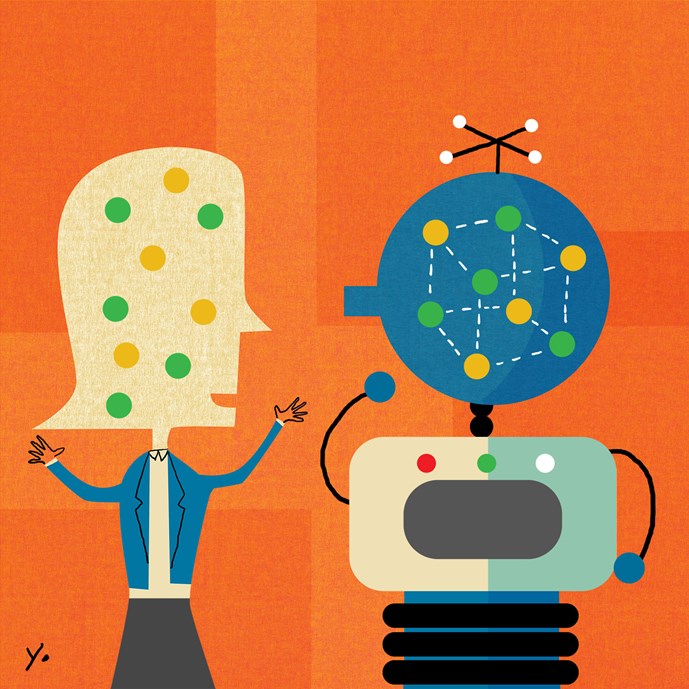Seedlink’s Rina Joosten-Rabou says the power of AI can create happier workers.
It doesn’t take much courage or brilliance to predict that artificial intelligence will play a large role in the future of recruiting.
Already, about a third of companies are using some element of AI in their hiring processes, and popping up to serve that market is a growing field of startups such as Hirevue, Mya and Seedlink Tech.
A better question is how dramatically a tight job market in the US and elsewhere will accelerate the growth of AI-enhanced recruiting. The internet has made it easier to apply for jobs, but that development has swamped recruiters with too many applications to process at human speed, especially when crucial openings need to be filled.

The result can be disgruntlement among job seekers whose applications never received a personal response, and wrong hires by recruiters who, unable to quickly distinguish the best candidates from among a vast field, may lean on biases toward, for instance, graduates from particular colleges.
What AI can do at nearly the speed of light is separate the most serious candidates from those with a fetish for job seeking, identify those with the most potential and further distinguish those with the particular skills, qualities and desires for the job at hand. It can also issue to each rejected candidate a response that includes a personal detail and, if appropriate, an encouragement to apply again for possible different openings.
Still to be determined is which approach will prove most effective and popular. Does the AI-driven video interview provide data and nuance that written programs can’t replicate? Or does video favor theatrical extroverts – who aren’t ideal for every job – while possibly perpetuating recruiters’ physical-appearance biases? Might programs that analyze applicants’ written responses prove adept at identifying solid candidates, while excluding possibly great ones that don’t fit a particular profile? If young swimmers with Olympic potential were selected based on the efficiency of their strokes, then Janet Evans – with her unorthodox style – might never have won four Olympic gold medals.
Proponents of AI-enhanced recruiting stress that computers will not replace in-person interviews, that hiring decisions will always be made by humans and that digital interviewing greatly expands the field of potential candidates. Perhaps most importantly, they say, AI-enhanced recruiting identifies candidates who would have been overlooked in the conventional process, and who turn out to be extraordinary employees.
Rina Joosten-Rabou, a co-founder and top executive of Seedlink, a Shanghai- and Amsterdam-based firm that is currently expanding to the US, spoke to us about the growing power of technology to create unforeseen opportunities for businesses and their prospective employees.

